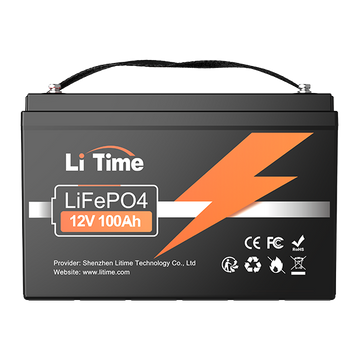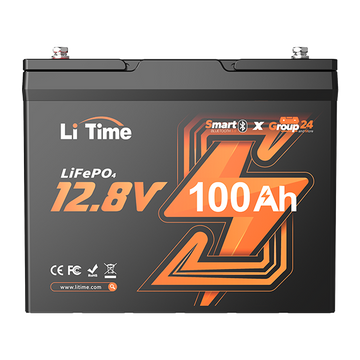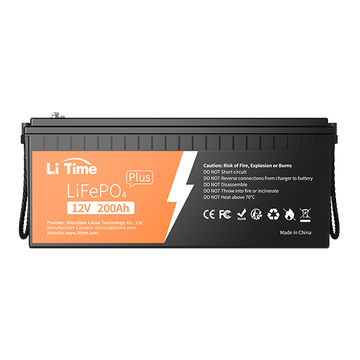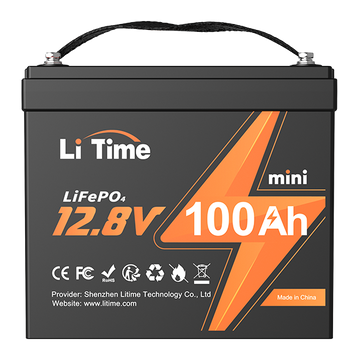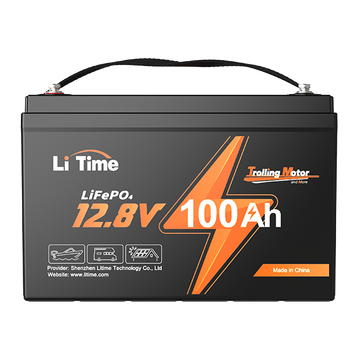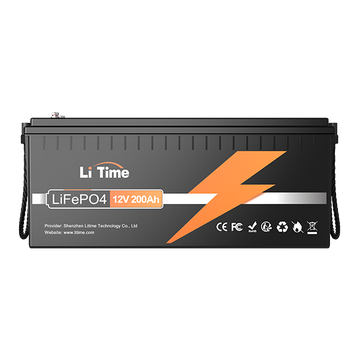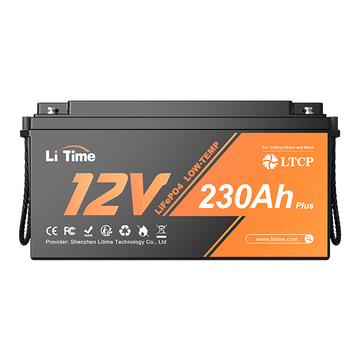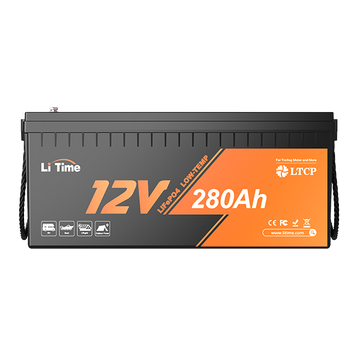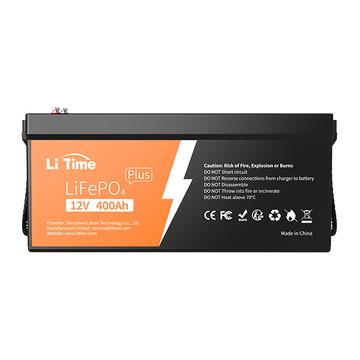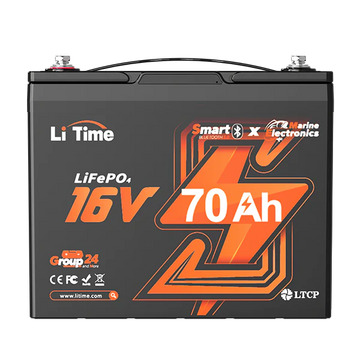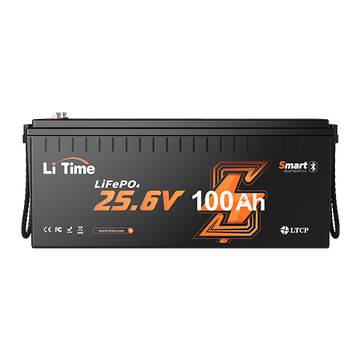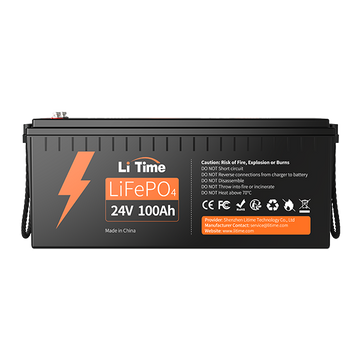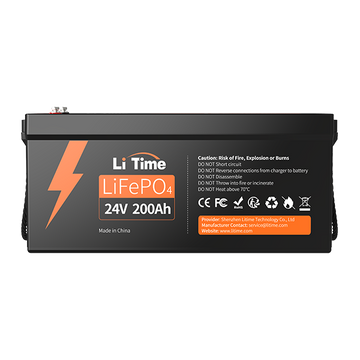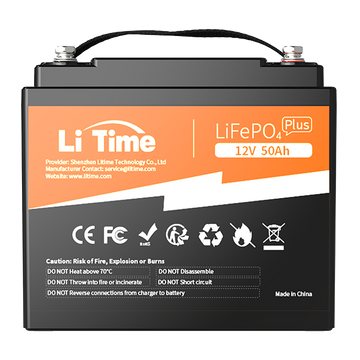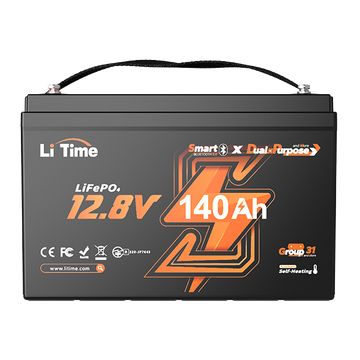As Australia's late summer and early autumn bring mild and stable weather, LiFePO4 battery life enters one of its most consistent periods of the year. This season offers the perfect opportunity for battery maintenance and performance optimization.
But how long does a LiFePO4 battery actually last—and what affects that lifespan?
In this post, we'll start by breaking down what makes LiFePO4 batteries different, then look at the three key factors that influence their longevity, and finally share five proven tips to help you extend their useful life.
Table of Content
- How long does LiFePO4 battery last?
- What is a LiFePO4 (lithium iron phosphate) battery?
- Three Key Factors That Affect the LiFePO4 Battery Life
- 1. Depth of Discharge (DoD) vs. Cycle Life
- 2. Temperature and Environmental Conditions
- 3. Charging/Discharging Habits and Build Quality
- Signs of Aging in LiFePO4 Batteries
- 1. Capacity Loss
- 2. Rising Internal Resistance & Lower Efficiency
- 3. Slower Charging & Weak Performance
- 5 Practical Tips to Extend LiFePO4 Battery Life
- 1. Manage Depth of Discharge (DoD): Avoid Full Drains
- 2. Avoid Extreme Temperatures
- 3. Use Quality, Compatible Charging Equipment
- 4. Perform Regular Maintenance and Balance Charging
- 5. Choose Trusted Brands with Quality BMS
- Conclusion
How long does LiFePO4 battery last?
LiFePO4 batteries can last up to 10 years or more with proper maintenance. Unlike traditional lead-acid batteries, they offer a theoretical cycle life of over 4,000 cycles, making them a longer-lasting choice when well cared for.
However, in real-world use, many users experience significant differences—some batteries show noticeable degradation after just 5 years, while high-quality products can last well beyond a decade.
What explains this variation? Understanding the battery’s chemistry and usage patterns is key to getting the most out of it.What is a LiFePO4 (lithium iron phosphate) battery?
What is a LiFePO4 (lithium iron phosphate) battery?
Before we dive deeper, it's important to understand what a LiFePO4 battery actually is.
LiFePO4 batteries, or lithium iron phosphate batteries, are a special type within the lithium battery family.
Unlike typical lithium batteries that use ternary materials like NCM, LiFePO4 uses lithium iron phosphate as the cathode material. This makes them far more thermally stable and less prone to fire or explosion under extreme conditions such as overheating, overcharging, or short-circuiting.
As a result, LiFePO4 batteries are widely used in energy storage systems, electric vehicles, RVs, and marine applications where safety is a top priority.
Three Key Factors That Affect the LiFePO4 Battery Life
Even though LiFePO4 batteries are known for their long lifespan and durability, their performance over time still depends on how they're used. Understanding these key factors can help you maximize battery life and long-term value.
1. Depth of Discharge (DoD) vs. Cycle Life
The deeper you discharge a LiFePO4 battery, the shorter its cycle life becomes. For example, using 80% of a battery's capacity (80% DoD) every cycle will wear it out faster than discharging only 50%.
While high-quality LiFePO4 batteries can handle thousands of cycles even at 100% DoD, it's best to avoid fully charging and discharging all the time. Sticking to moderate DoD levels helps extend battery life.
2. Temperature and Environmental Conditions
Extreme heat or cold can take a toll on LiFePO4 batteries:
- High temperatures (above 35°C / 95°F) speed up internal wear and reduce capacity.
- Low temperatures (below 0°C / 32°F) increase internal resistance and can damage components.
Most LiFePO4 batteries operate safely between –10°C to 60°C (14°F to 140°F). Staying within this range helps preserve performance and longevity.
3. Charging/Discharging Habits and Build Quality
Charging too fast or drawing too much power at once can stress the battery, cause overheating, and shorten its lifespan.
To avoid issues:
- Stick to the voltage and current limits set by the manufacturer.
- Avoid running the battery at its max limits for long periods.
Battery quality also matters. Not all LiFePO4 batteries are built the same—better cell materials, manufacturing processes, and smarter Battery Management Systems (BMS) make a big difference.
While premium batteries may cost more upfront, they often last longer, run more efficiently, and are more reliable in the long term—making them a better investment overall.
Signs of Aging in LiFePO4 Batteries
Before you focus on optimizing battery usage, it's just as important to recognize when a LiFePO4 battery is showing signs of aging. Catching these early can help you maintain system performance and avoid unexpected failures.
1. Capacity Loss
Over time, a LiFePO4 battery's ability to store and deliver energy naturally declines. This is normal.
You can check this using a battery capacity tester—compare the current capacity (measured in mAh) to the original rating.
🔋 Typical aging rate: After around 3,000 cycles, a 10% drop in capacity is considered acceptable under proper use.
2. Rising Internal Resistance & Lower Efficiency
As the battery ages, internal resistance increases, making it harder for energy to flow efficiently.
This can lead to:
- Increased heat during operation
- Slower response under load
- Reduced overall performance
In severe cases, this may cause connected devices to behave erratically or shut down unexpectedly.
3. Slower Charging & Weak Performance
An aging LiFePO4 battery may take longer to charge and drain much faster than before.
Common symptoms include:
- Battery won’t fully charge
- Power drops quickly during use
- Noticeably shorter runtime
If you're seeing these issues regularly, it may be time to evaluate the battery’s capacity or consider a replacement.
5 Practical Tips to Extend LiFePO4 Battery Life
Now that we’ve explored what affects a LiFePO4 battery's lifespan, here are five actionable strategies to help you get the most out of your battery—day in, day out:
1. Manage Depth of Discharge (DoD): Avoid Full Drains
Keeping your battery between 20%–80% state of charge is ideal for daily use. This “shallow discharge + frequent charging” routine eases stress on battery materials and can significantly increase cycle life. Full charges and full discharges should be avoided unless absolutely necessary.
2. Avoid Extreme Temperatures
LiFePO4 batteries perform best between –10°C and 60°C (14°F–140°F).
If your setup is exposed to the outdoors or enclosed spaces (like RV compartments), install ventilation, insulation, or cooling systems to minimize temperature-related degradation.
3. Use Quality, Compatible Charging Equipment
Always use chargers and inverters designed for LiFePO4 chemistry. The right equipment ensures proper charging curves, includes safeguards like overvoltage protection and temperature monitoring, and supports balanced charging. Incompatible gear can cause long-term damage and even pose safety risks.
4. Perform Regular Maintenance and Balance Charging
While LiFePO4 batteries are low-maintenance, it’s still wise to check battery health periodically—especially in multi-battery setups.
If you notice voltage imbalances across cells or packs, perform a balance charge to correct discrepancies and maintain system efficiency.
5. Choose Trusted Brands with Quality BMS
Battery quality starts from the inside out.
Opt for brands that offer:
- Proven reliability
- Strong customer support
- High-quality Battery Management Systems (BMS)
A good BMS prevents overcharge, undervoltage, and thermal issues—protecting your investment and extending battery life.
LiTime specializes in lithium battery R&D and manufacturing. With its self-developed BMS, 5-year warranty, and 24/7 tech support, LiTime offers reliable, high-performance energy storage solutions built for safety and durability.
Top 3 LiTime 24V LiFePO4 Batteries Worth Considering
LiTime offers a range of 24V models to meet different needs—from outdoor energy storage to high-power system demands:
✅LiTime Australia 24V 100Ah LiFePO4 Lithium Battery
Lightweight and compact with 4000+ cycles. Ideal for RVs and portable power stations.
✅xLiTime 24V 200Ah LiFePO4 Battery
Features a 200A BMS and 5120Wh total energy. Perfect for large systems and expandable battery banks.
✅LiTime 24V 100Ah LiFePO4 Bluetooth Lithium Battery
Built-in Bluetooth and low-temp protection. Enables real-time monitoring via app—great for smart users and cold-weather environments.

Here's a side-by-side comparison of LiTime's 24V battery lineup:
| Product Model | 24V 100Ah Standard | 24V 200Ah High Capacity | 24V 100Ah Bluetooth |
|---|---|---|---|
| Total Energy | 2560Wh | 5120Wh | 2560Wh |
| BMS | 100A | 200A | 100A |
| Cell Grade | EV-Grade | EV-Grade | EV-Grade |
| Cycle Life | 4000+ cycles @100% DoD | 4000+ cycles @100% DoD | 4000+ cycles @100% DoD |
| Special Features | Lightweight, Easy to Install | Ultra-high capacity, Supports 4P2S | Bluetooth Monitoring, Low Temp Cut-off |
| Recommended Applications | RVs, trolling motors | Off-grid, high-load systems | Smart homes, cold environments |
| Warranty | 5 years | 5 years | 5 years |
| Shipping Service | Local AU shipping (2–5 days) | Local AU shipping (2–5 days) | Local AU shipping (2–5 days) |
Why Choose a 24V LiFePO4 Battery?
Compared to 12V systems, 24V batteries deliver the same power with lower current, reducing line loss and improving overall efficiency. That’s why 24V LiFePO4 batteries are ideal for high-load applications like RVs, boats, off-grid systems, and solar setups.
Plus, a single 24V battery eliminates the need for series wiring, making installation simpler and systems more stable and safer.
For lighter loads, a 12V system remains a solid choice. But when higher energy density, stronger output, and streamlined setup are priorities, 24V LiFePO4 batteries offer a more efficient solution.
Conclusion
LiFePO4 batteries offer long life and reliable performance—if you use and maintain them right. By following a few simple best practices and choosing quality products like LiTime’s 24V lineup, you’ll get safer, smarter, and longer-lasting power for years to come.

